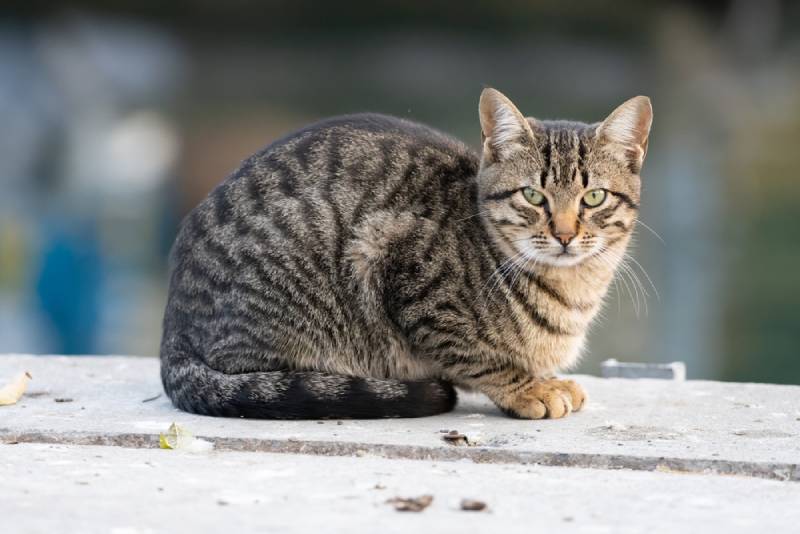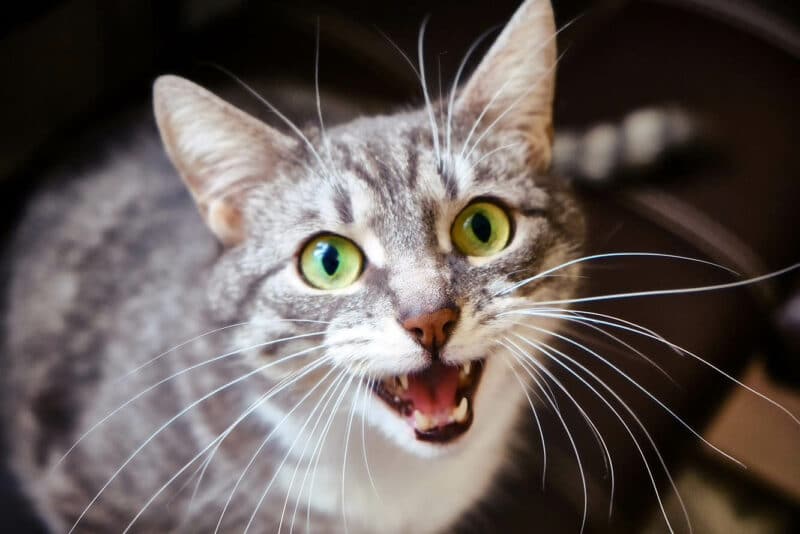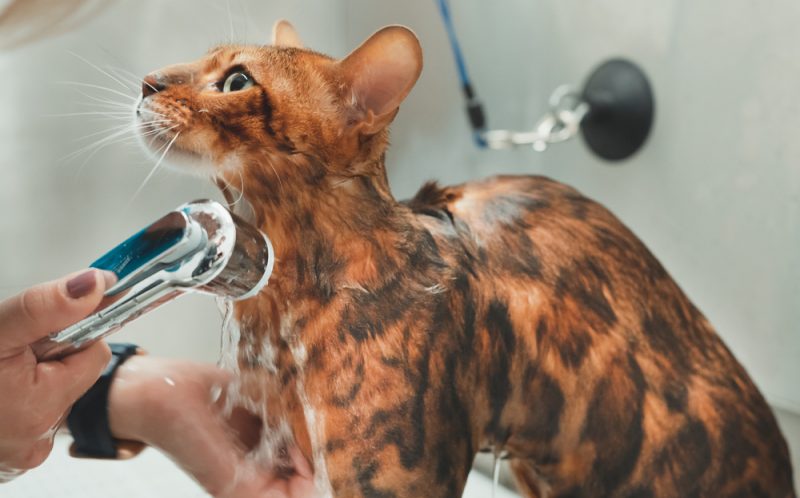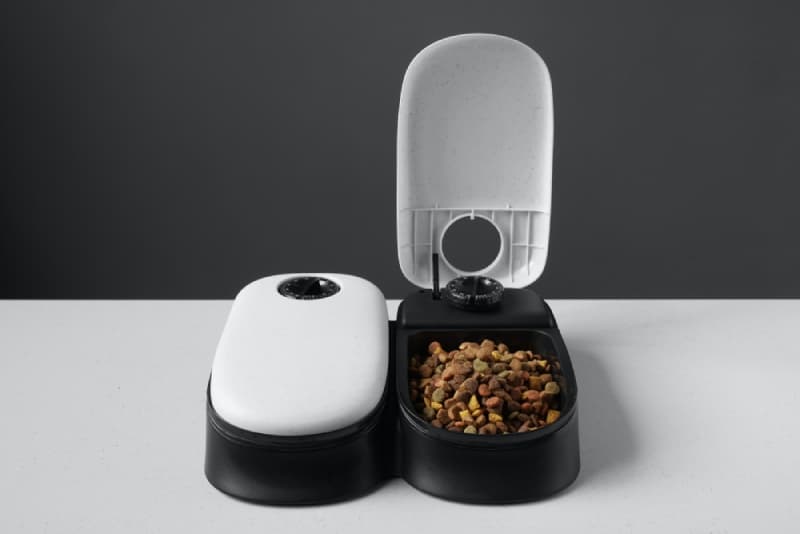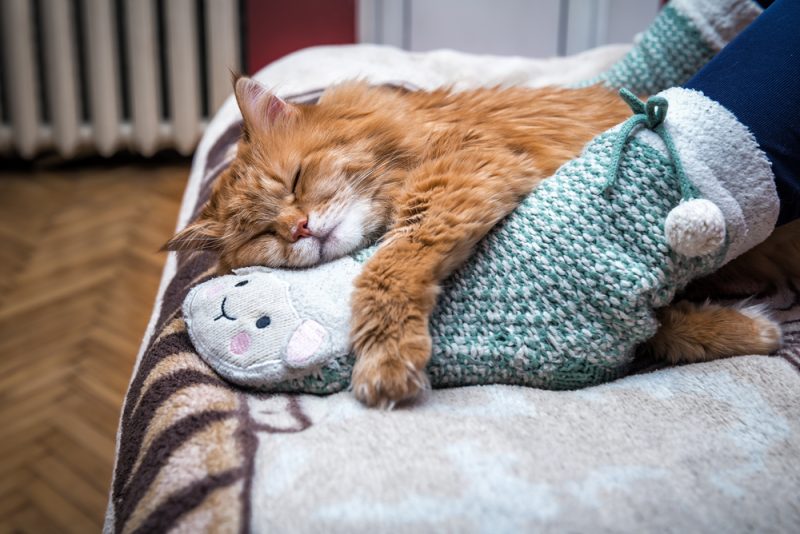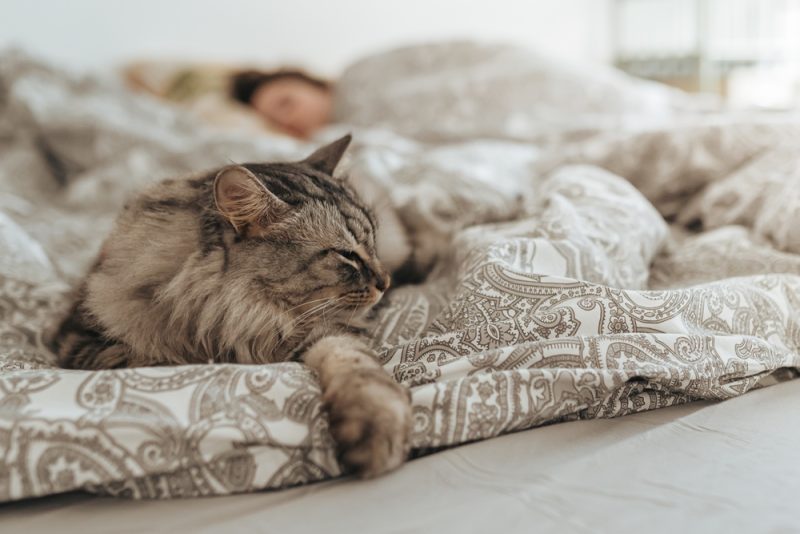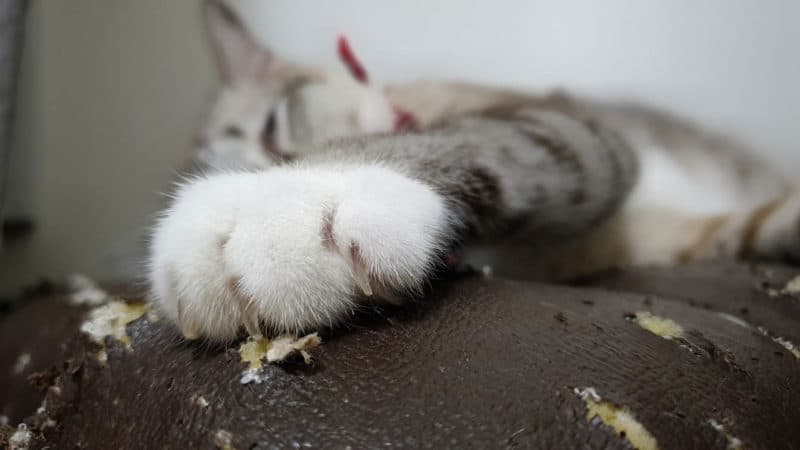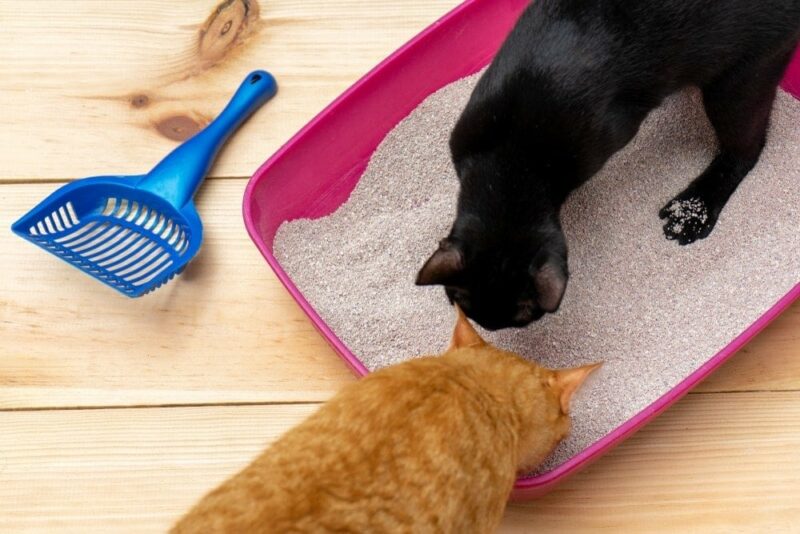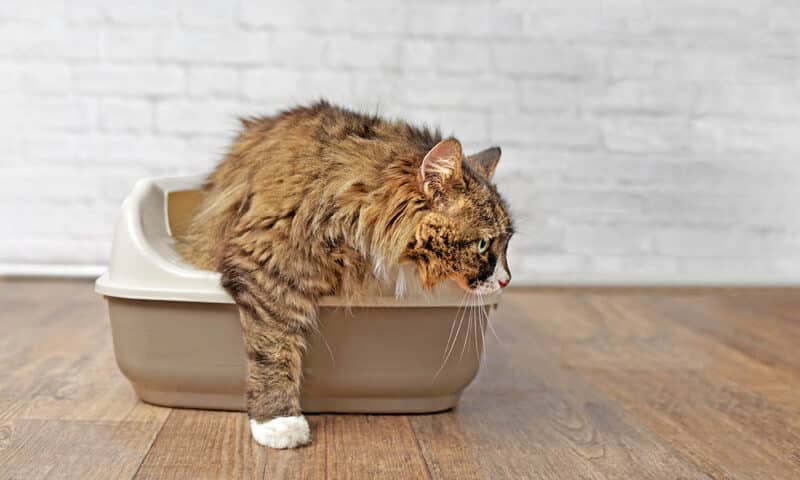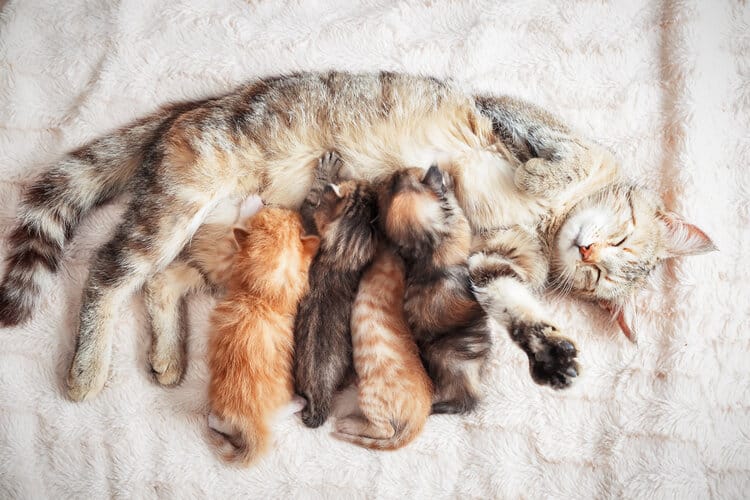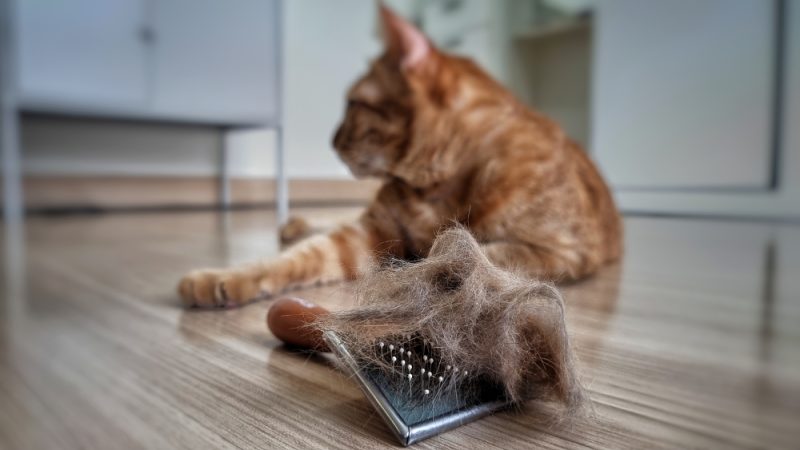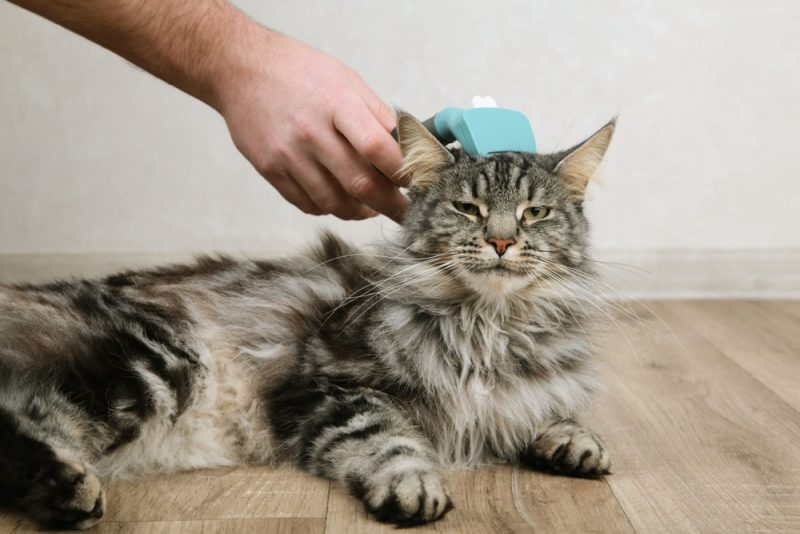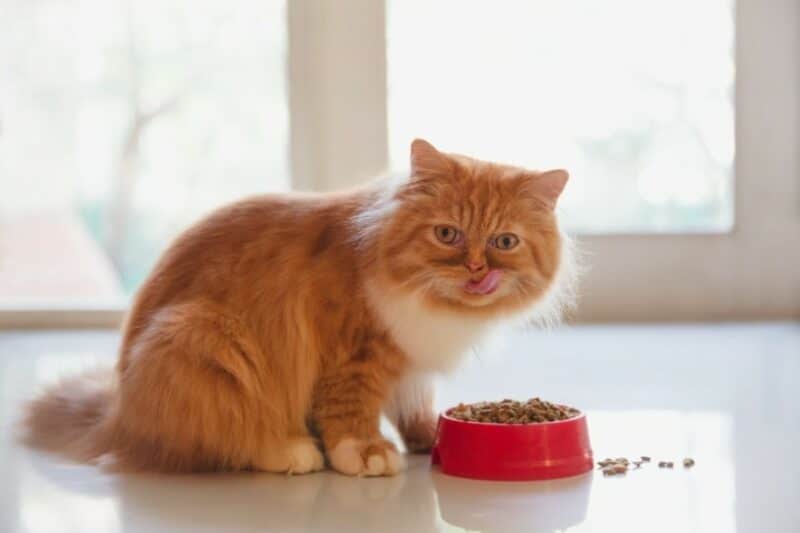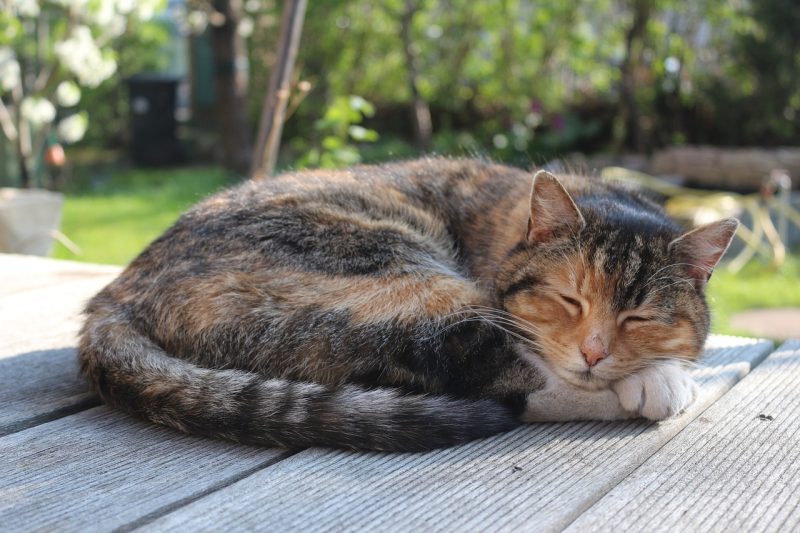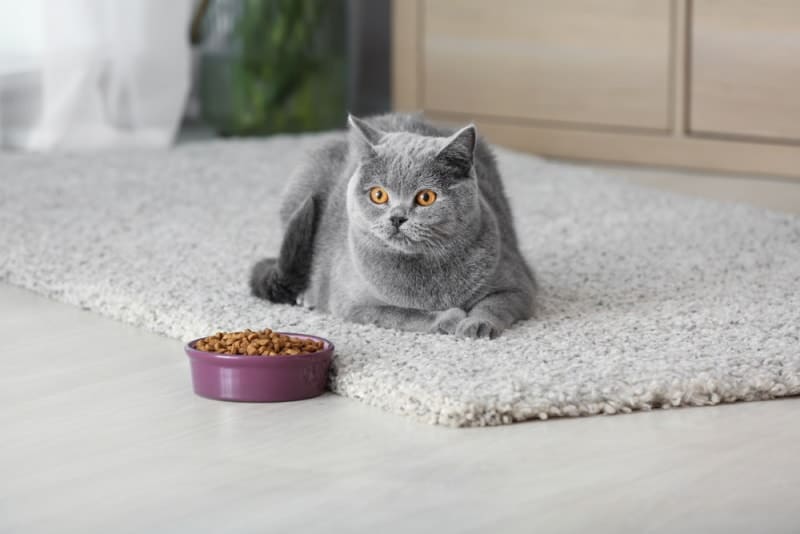Cats are known for their quirky behaviors and love of throwing themselves down in sunny spots indoors or out. But have you ever wondered why your cat enjoys rolling around on rough, scratchy surfaces like concrete?
As it turns out, there are a few reasons for this behavior. For one, concrete is cool to the touch, which can be refreshing for cats on hot days. Additionally, the hard surface helps remove loose fur and dirt from their coats. And rolling around on concrete gives cats a chance to stretch their muscles and work out any kinks. Cats roll on concrete for a variety of reasons that are normal and not cause for concern, and we’ve got them all covered.
So, next time you see your cat rolling around on the ground outside, don’t be alarmed. They’re most likely enjoying a little self-care session courtesy of Mother Nature. Find out more about this strange feline behavior by reading on.
Important note: Cats are individuals, and their behavior can vary. Not every cat rolls on concrete for all these reasons, and tailing cues or rolling behaviors alone should not be used to diagnose health or reproductive status.

The 7 Reasons Why Cats Roll on Concrete
1. Marking Their Territory
When your cat rubs their body on concrete, they might do so to leave their scent behind. Cats have scent glands in their heads, paws, and tails. When they roll on concrete, they can transfer some of that scent onto the ground. This is their way of marking their territory. As you might expect, other cats will take notice of this scent mark. If they happen to be in the same area, they will know that another cat has already claimed it as their own.
So, if you see your cat rolling around on the ground, don’t worry—they’re just doing what comes naturally to them.
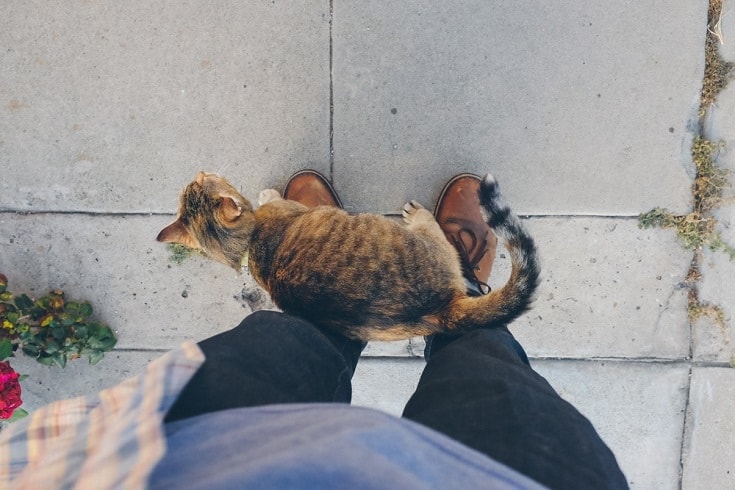
2. Scratching an Itch
Scratching hard-to-reach spots is another reason cats love rolling around on concrete and asphalt. Cats often get creative when scratching their backs since they may not be able to reach certain spots. In order to satisfy this urge, many cats rub themselves against walls or the ground. The surface of concrete is perfect for scratching by cats. They can rub their backs vigorously against it because it is solid, flat, and has a rough texture.
The concrete is coarse, but it’s not so abrasive that it can cause injuries. Most neighborhoods also have a lot of concrete. Concrete is bound to be nearby no matter where you and your cat live: rural, urban, or suburban.
3. Keeping Cool
Your cat may be rolling on concrete to keep cool. Cats are heat seekers, and they love to lounge in the sun. But when the temperatures get too hot, they’ll start looking for cooler spots to hang out. One of their favorite places to cool off is concrete, as long as it’s in the shade. Concrete conducts heat better than most materials, so it’s the perfect place for your cat to relax on a hot day. Plus, it’s usually smooth and cool to the touch, which feels good on their warm fur.
If you notice your feline friend is sprawled out on concrete, just make sure your kitty has access to shady areas and plenty of water since it may be an indication that it’s too hot for them.
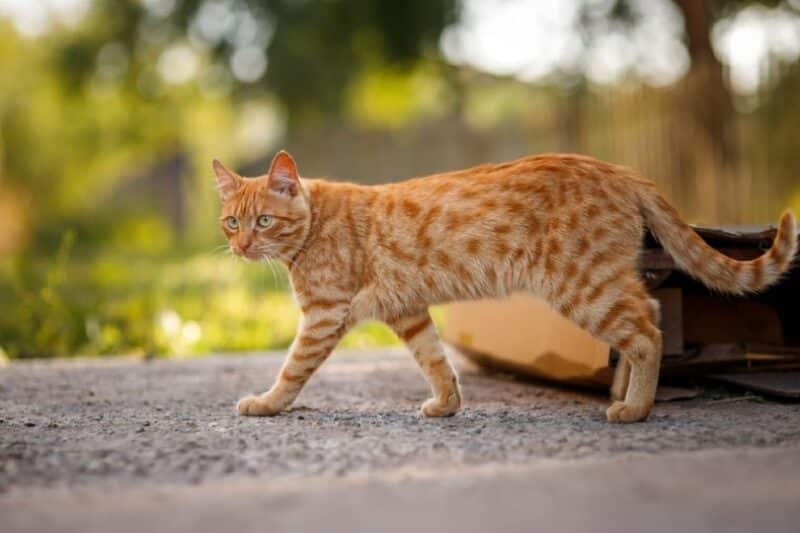
4. Heating Up
When it’s cold outside, your cat may look for warmer surfaces to lie on. If you notice your cat rolling around on the concrete, they’re likely trying to warm up. Cats are attracted to warmth, so it’s not uncommon for them to lie on sun-warmed concrete or asphalt. If you see your cat rolling on the ground, don’t worry—they’re just trying to stay warm.
However, you should make sure that they have access to a warm, comfortable bed inside so that they can rest when they need to. If your cat is an outdoor cat you might want to provide them with an outdoor heating pad.
5. Catnip High
Cats love catnip. When they smell it, most cats can’t help but start rolling over. But why do they do this? Catnip is a member of the mint family. It contains a chemical called nepetalactone, which is somehow similar to a compound found in valerian root. When some cats smell this compound, it causes evident behavioral changes. They seem to experience happiness and a sense of euphoria, which is why they seem to be “high” when they’re rolling around in catnip.
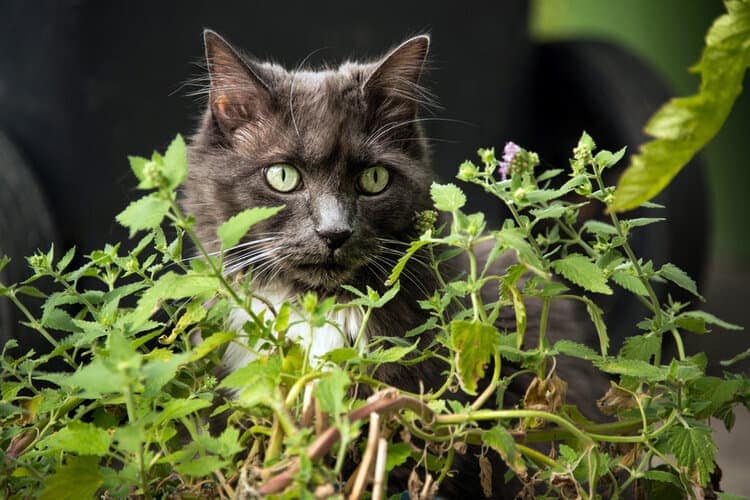
6. Your Cat is in Heat
A cat rolling on concrete can also be a sign that they are in heat. This is because they are trying to spread their scent to attract mates. Cats in heat will also yowl and call out for mates. They may also seem more affectionate toward you than usual. If you have an unneutered male or female cat, it’s best to keep them indoors. Better yet, unless you intend to breed your cat, have them spayed or neutered. There are many benefits to spaying or neutering your cat, for example, it can help to reduce their risk of certain health issues, such as cancer of the reproductive organs.
Not only is it good for your cat’s health, but spaying or neutering can also help to reduce the number of homeless animals. Every year, millions of cats end up in shelters because there are simply too many animals and not enough homes. Spaying or neutering your cat helps to prevent this from happening.
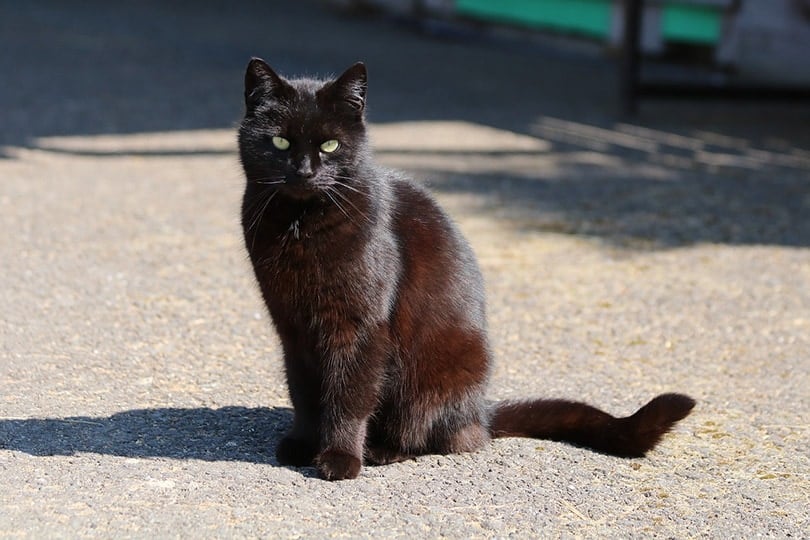
7. Coat Care
Rather than taking a bath in water and soap, cats enjoy taking a bath in dirt and dust. In addition to soothing itchy skin, cats roll on concrete to try to remove parasites and plant matter. Since concrete driveways are uneven and scratchy, they work well, and cats prefer them to raw earth because they won’t leave your kitty covered in dirt. Rolling around is a great way to dislodge built-up fur, also, and it helps to distribute natural oils evenly throughout your cat’s coat, keeping it healthy and looking shiny.
If you see your cat indulging in this sort of grooming regularly, you may want to give them a good brushing once or twice a day. Ask a veterinarian how you should care for your cat so they won’t feel the need to scratch themselves excessively.
If you need to speak with a vet but can't get to one, head over to PangoVet. It's an online service where you can talk to a vet online and get the advice you need for your pet — all at an affordable price!

Conclusion
In conclusion, there are a few reasons why your cat might enjoy rolling around on concrete. Maybe they like the feeling of the cool surface on their fur, or they could be trying to mark their territory with their scent. Whatever the reason, it’s important to provide them with a safe space to do so and to keep an eye on them to make sure they’re not getting too dirty!
Featured Image Credit: Burhan Oral GUDU, Shutterstock
